Interesting take on how religion & science are interrelated and how space travel will unlike the spiritual & scientific secrets of the Universe:
You are using an out of date browser. It may not display this or other websites correctly.
You should upgrade or use an alternative browser.
You should upgrade or use an alternative browser.
Great News for a Mars Colony!
- Thread starter lotr10
- Start date
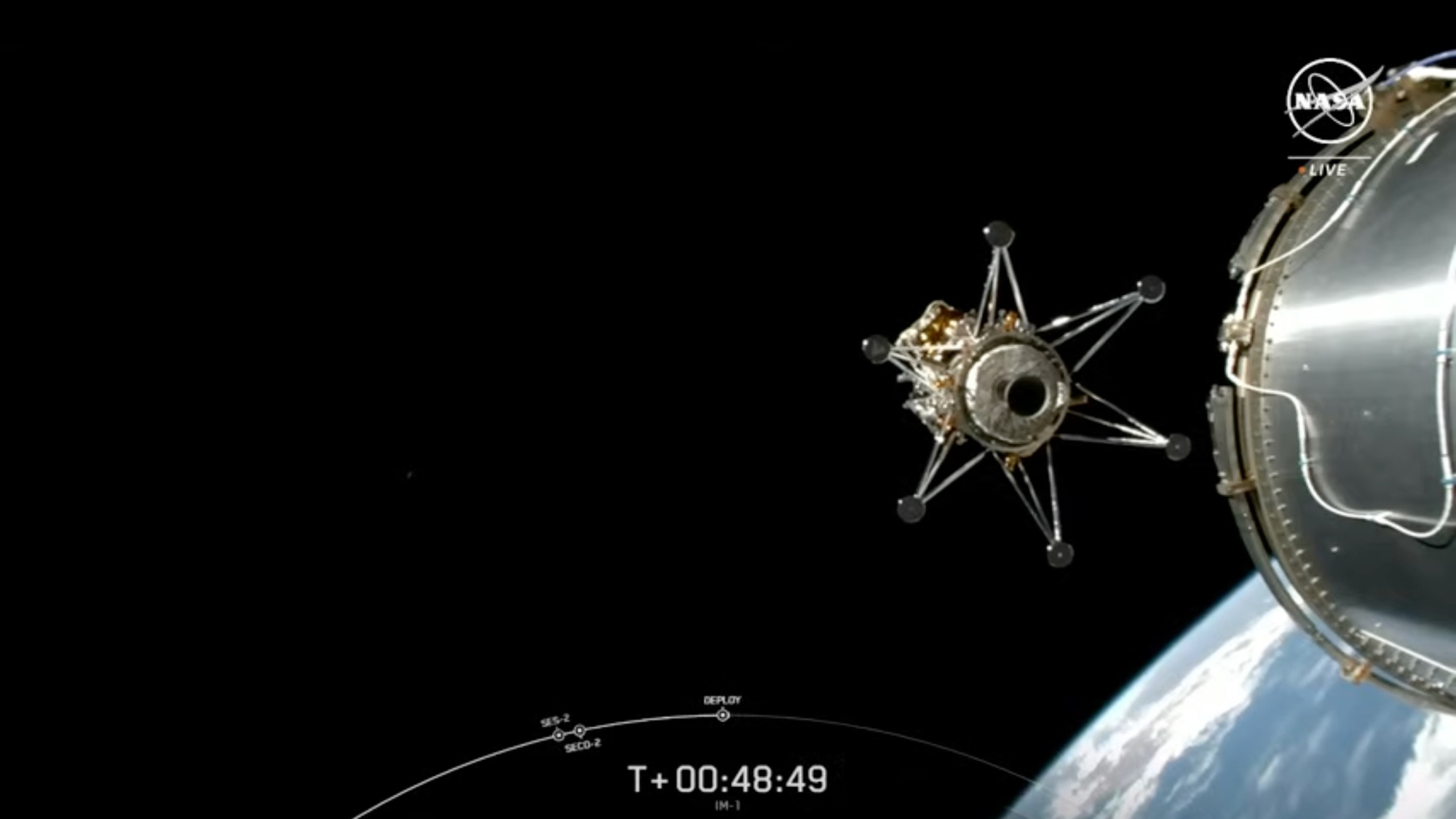
Watch Intuitive Machines' private Odysseus lander attempt historic moon landing
The touchdown try is scheduled for 6:24 p.m. ET today (Feb. 22).

US Makes First Moon Landing In 50 Years
The mission was carried out in joint effort by SpaceX, NASA and Intuitive Machines.
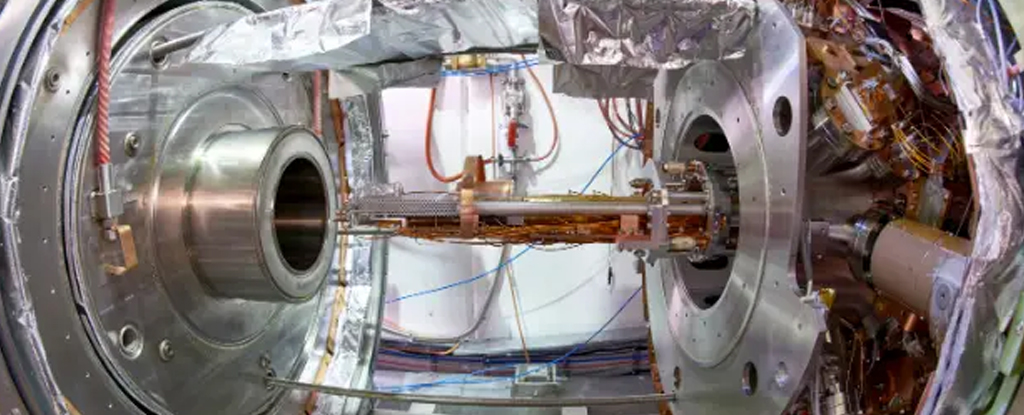
Antimatter Could Unlock a Radical New Future of Interstellar Travel
Interstellar travel is only something humanity has achieved in science fiction — like Star Trek's USS Enterprise, which used antimatter engines to travel across star systems.
An antimatter engine could theoretically accelerate a spacecraft at 1g (9.8 meters per second squared) getting us to Proxima in just five years, Weed said in 2016. That's 8,000 times faster than it would take Voyager 1 — one of the fastest spacecraft in history — to travel about half the distance, according to NASA.
Even within our own solar system, an antimatter-powered spacecraft could reach Pluto in 3.5 weeks compared to the 9.5 years it took NASA's New Horizons probe to arrive, Weed said.
Sign me up for a vacation to Proxima!
Antimatter Could Unlock a Radical New Future of Interstellar Travel
Interstellar travel is only something humanity has achieved in science fiction — like Star Trek's USS Enterprise, which used antimatter engines to travel across star systems.www.sciencealert.com
An antimatter engine could theoretically accelerate a spacecraft at 1g (9.8 meters per second squared) getting us to Proxima in just five years, Weed said in 2016. That's 8,000 times faster than it would take Voyager 1 — one of the fastest spacecraft in history — to travel about half the distance, according to NASA.
Even within our own solar system, an antimatter-powered spacecraft could reach Pluto in 3.5 weeks compared to the 9.5 years it took NASA's New Horizons probe to arrive, Weed said.
Kudos to those scientists that come up with these theoretical solutions to interstellar travel. Some very exciting ideas out there, but with each great idea, even more obstacles arise. One such example: A spacecraft traveling at that speed would also need protection from colliding into any type of space stuff (matter), even the smallest speck of dust, since we now understand Einstein's mass-energy equivalence. I saw a science show, many years ago, that said if a spacecraft were traveling near the speed of light and collided with a single hydrogen atom, it would create an explosion equal to an atomic bomb.
I hate to always be the pessimist, but I believe interstellar travel may be out of reach for even far more advanced species. This is one reason why I don't believe Earth has been "knowingly" visited by aliens (panspermia does not count). Aliens face the same constraints and laws of nature that we face. Some of these may be insurmountable.
Visit and colonize other planets or moons? Sure, that's reasonably within reach of very advanced civilizations. Travel to other stars? Not so much. Space is enormous. So enormous, that no human can actually grasp the vast distances between stars and galaxies.
As always, this is a very interesting topic and I am interested in other yappsters' thoughts.
It starts with the theory then it moves on to confirmation and practical implementation. Whether it will be 25 years or 250 years I'm confident it will happen one day.Sign me up for a vacation to Proxima!
Kudos to those scientists that come up with these theoretical solutions to interstellar travel. Some very exciting ideas out there, but with each great idea, even more obstacles arise. One such example: A spacecraft traveling at that speed would also need protection from colliding into any type of space stuff (matter), even the smallest speck of dust, since we now understand Einstein's mass-energy equivalence. I saw a science show, many years ago, that said if a spacecraft were traveling near the speed of light and collided with a single hydrogen atom, it would create an explosion equal to an atomic bomb.
I hate to always be the pessimist, but I believe interstellar travel may be out of reach for even far more advanced species. This is one reason why I don't believe Earth has been "knowingly" visited by aliens (panspermia does not count). Aliens face the same constraints and laws of nature that we face. Some of these may be insurmountable.
Visit and colonize other planets or moons? Sure, that's reasonably within reach of very advanced civilizations. Travel to other stars? Not so much. Space is enormous. So enormous, that no human can actually grasp the vast distances between stars and galaxies.
As always, this is a very interesting topic and I am interested in other yappsters' thoughts.
lotr, I appreciate your insights and know that you are always much more optimistic than me on space travel. Maybe someday in our life, I will say, "You were right!" Until then, I hope we will at least land humans on the moon again in my lifetime.It starts with the theory then it moves on to confirmation and practical implementation. Whether it will be 25 years or 250 years I'm confident it will happen one day.

Japans Will Launch Mission to Mars Moons - Phobos and Deimos in 2024 With Samples Returned in 2029 | NextBigFuture.com
Japan's space agency (JAXA) is sending a mission to travel to Mars which will survey the Red Planet's two moons, Phobos and Deimos. The spacecraft will
 www.nextbigfuture.com
www.nextbigfuture.com
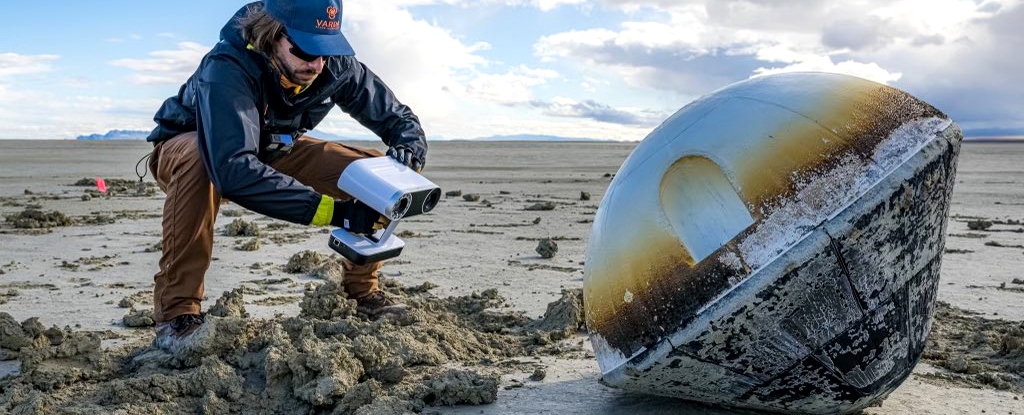
Experimental Drugs Grown in Space Return to Earth For Analysis
On Wednesday, February 21st, at 01:40 p.m.
Awesome videos. Scroll down and watch the 5 minute video which is the best one:
Be careful guys!
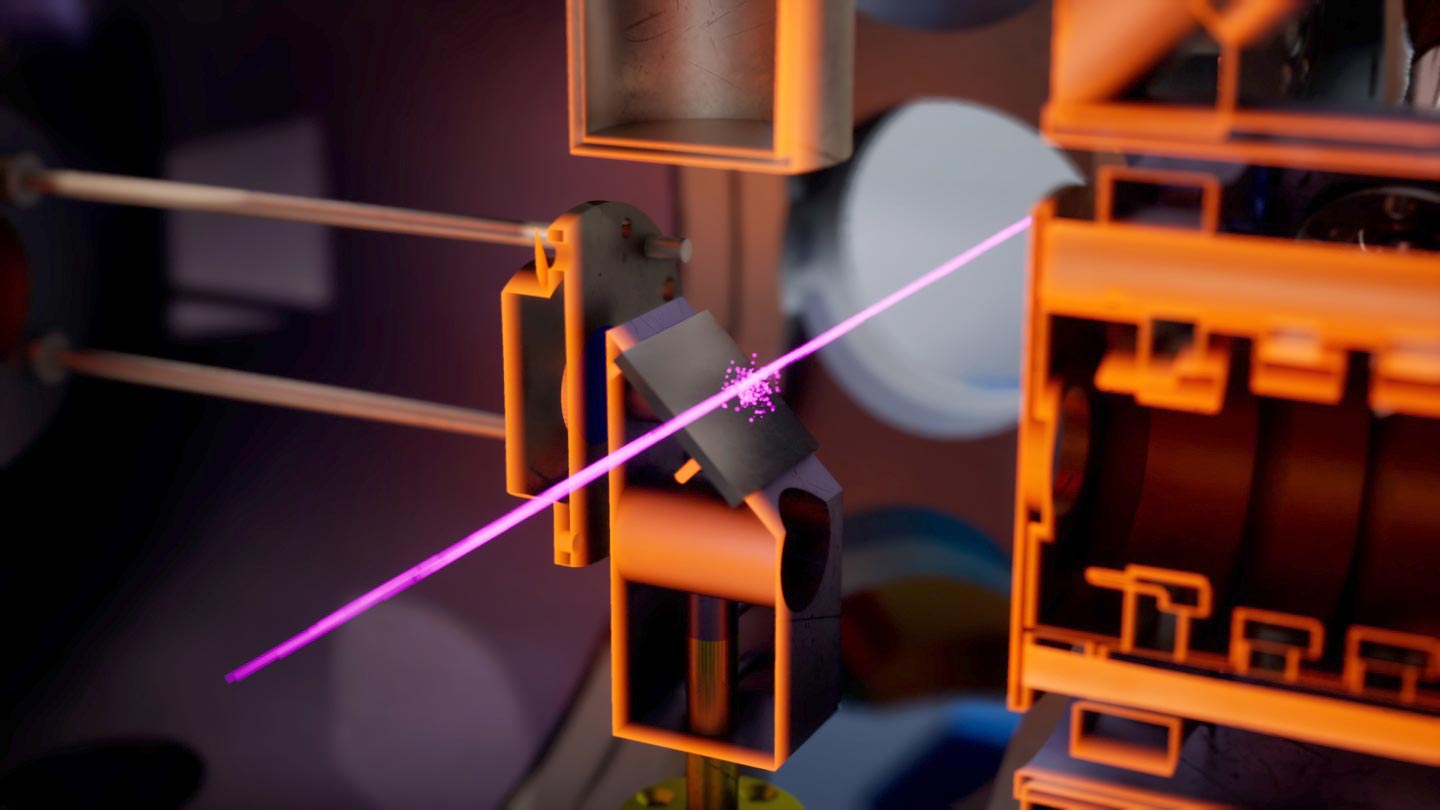

Freezing Positronium Atoms With Lasers To Unlock Secrets of Antimatter
Researchers successfully cooled positronium atoms, significantly impacting antimatter research and enabling new experiments in quantum electrodynamics and the potential for an antimatter Bose-Einstein condensate. The international AEgIS (Antimatter Experiment: gravity, Interferometry, Spectroscop
scitechdaily.com
Just the other day I said, "It's amazing what can be done with positronium atoms. If only we could freeze them using an alexandrite-based laser system. Then that would likely decrease the transversal component of Ps rms velocity from about 54 kms/s to 37 km/s, allowing us to measure the gravitational acceleration of antihydrogen and unlock some secrets of antimatter. I sure hope somebody is working on this."Be careful guys!

Freezing Positronium Atoms With Lasers To Unlock Secrets of Antimatter
Researchers successfully cooled positronium atoms, significantly impacting antimatter research and enabling new experiments in quantum electrodynamics and the potential for an antimatter Bose-Einstein condensate. The international AEgIS (Antimatter Experiment: gravity, Interferometry, Spectroscopscitechdaily.com
Our sun isn't even a big star. The giant stars would dwarf El Sol. I don't think anybody can really grasp the size of our universe or even our galaxy. Amazing stuff.
Puny humans are puny.
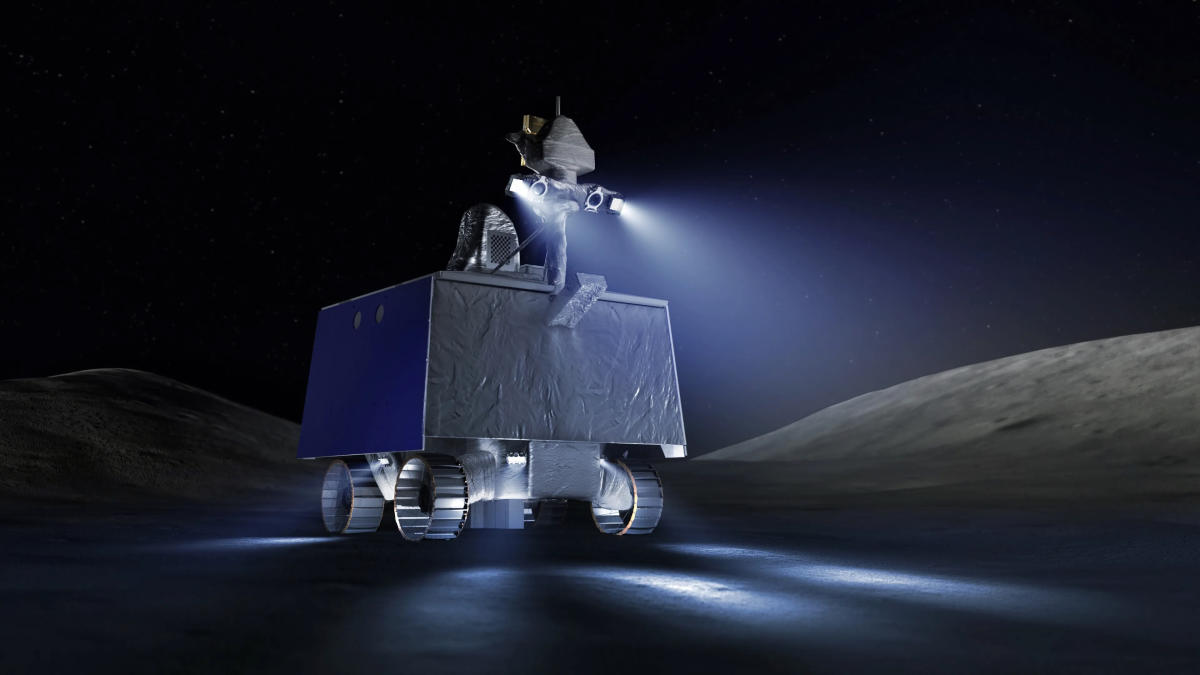
NASA's ice-hunting VIPER moon rover getting ready to slither to the launch pad
NASA's VIPER moon rover is a step closer to making its lunar journey late this year: The robot's flight instruments are fully installed and the rover over 80% built.
Now this is embarrassing:

Interstellar signal linked to aliens was actually just a truck
<p>Sound waves thought to be from a 2014 meteor fireball north of Papua New Guinea were almost certainly vibrations from a truck rumbling along a nearby road, new Johns Hopkins University–led research shows. The findings raise doubts that materials pulled last year from the ocean are alien...
www.eurekalert.org
I didn't know Jupiter had a great Blue Spot!
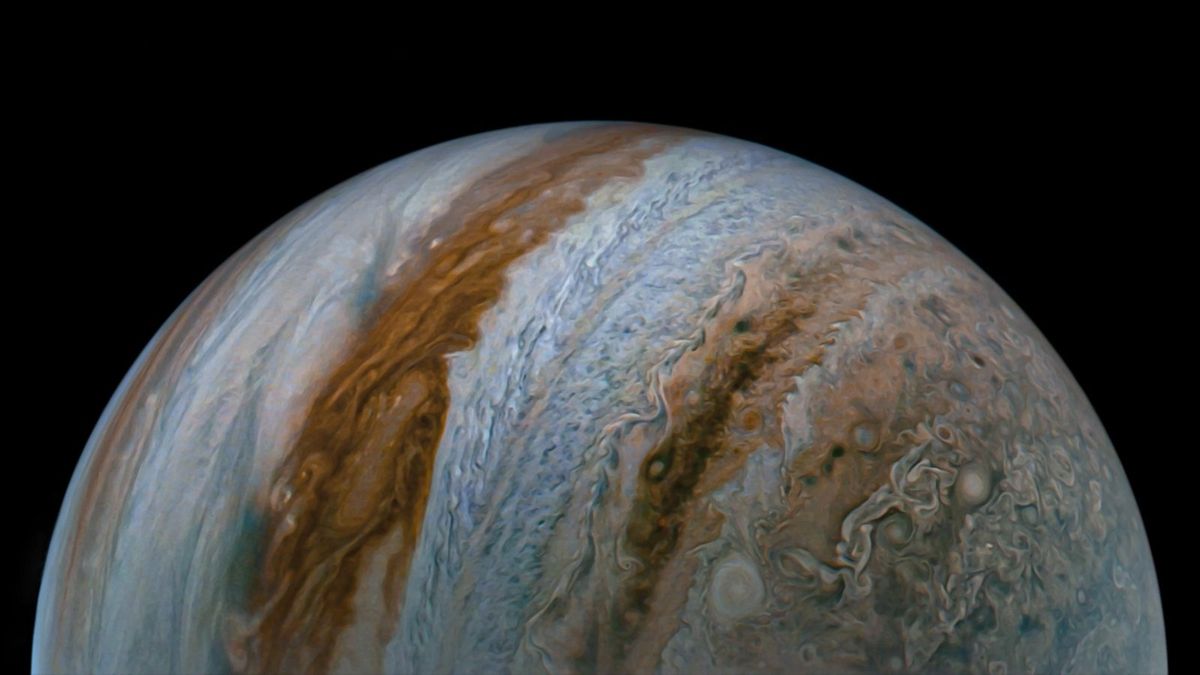
 www.space.com
www.space.com

Mystery of Jupiter's Great Blue Spot deepens with strangely fluctuating jet
"We don't know why that place has that kind of an anomaly."
What could possibly go wrong?
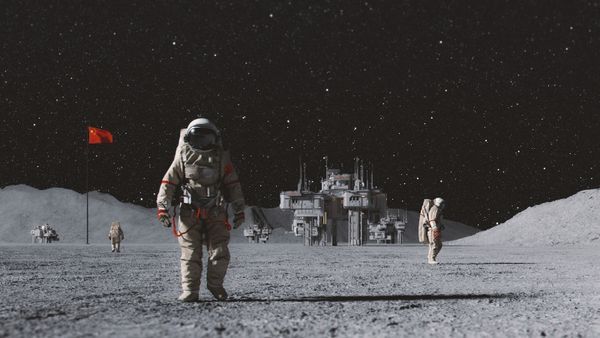
 www.space.com
www.space.com

Russia and China announce plan to build shared nuclear reactor on the moon by 2035, 'without humans'
The proposed nuclear reactor would provide energy to a lunar base that Russia and China have agreed to build together.
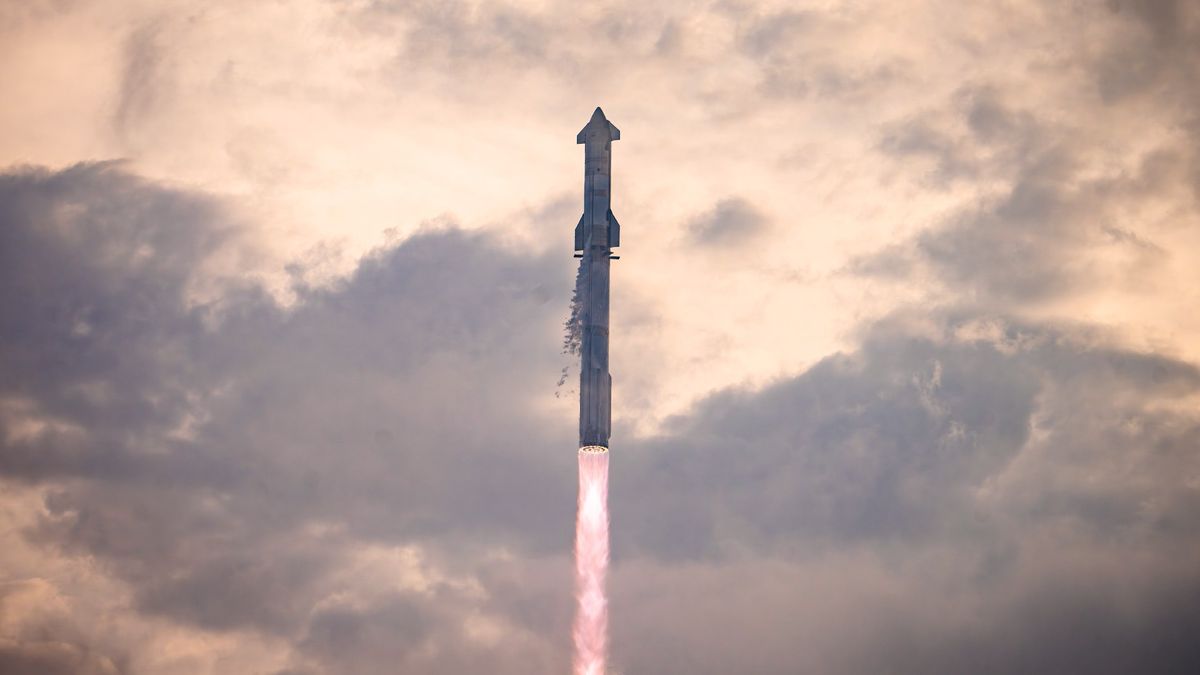
Get ready: SpaceX's Starships are coming
We could see a half-dozen flights of the giant silver rocket this year alone.
OldSoulon
Well-known member
My favorite Sci Fi/Fantasy author, as he transcends that genre with regularity.Interesting take on how religion & science are interrelated and how space travel will unlike the spiritual & scientific secrets of the Universe:

SpaceX Starship Reached Orbit. Why Does It Matter? | NextBigFuture.com
SpaceX had the huge success on March 14, 2024 with the successful launch of Starship to orbit. The Super Heavy booster returned most of the way but lost
 www.nextbigfuture.com
www.nextbigfuture.com
When I die deep freeze me and load me as cargo onto the first of these missions!
https://www.space.com/spacex-starship-go-interstellar-elon-musk-says
SpaceX's Starship megarocket could eventually live up to its bold name.
A future iteration of Starship, which conducted its third-ever test flight last week, will go interstellar, according to SpaceX founder and CEO Elon Musk.
"This Starship is designed to traverse our entire solar system and beyond to the cloud of objects surrounding us. A future Starship, much larger and more advanced, will travel to other star systems," Musk said via X early Monday morning (March 18).
https://www.space.com/spacex-starship-go-interstellar-elon-musk-says
SpaceX's Starship megarocket could eventually live up to its bold name.
A future iteration of Starship, which conducted its third-ever test flight last week, will go interstellar, according to SpaceX founder and CEO Elon Musk.
"This Starship is designed to traverse our entire solar system and beyond to the cloud of objects surrounding us. A future Starship, much larger and more advanced, will travel to other star systems," Musk said via X early Monday morning (March 18).
Whether you like him or not, you have to love Elon Musk's big thinking, optimism and risk taking.When I die deep freeze me and load me as cargo onto the first of these missions!
https://www.space.com/spacex-starship-go-interstellar-elon-musk-says
SpaceX's Starship megarocket could eventually live up to its bold name.
A future iteration of Starship, which conducted its third-ever test flight last week, will go interstellar, according to SpaceX founder and CEO Elon Musk.
"This Starship is designed to traverse our entire solar system and beyond to the cloud of objects surrounding us. A future Starship, much larger and more advanced, will travel to other star systems," Musk said via X early Monday morning (March 18).
To infinity and beyond!
I dislike Tesla and his stand on EV's but love Musk for everything he's doing to open up space to the world and to keep America at the forefront of those efforts. IMO that's a beautiful win/win.Whether you like him or not, you have to love Elon Musk's big thinking, optimism and risk taking.
To infinity and beyond!
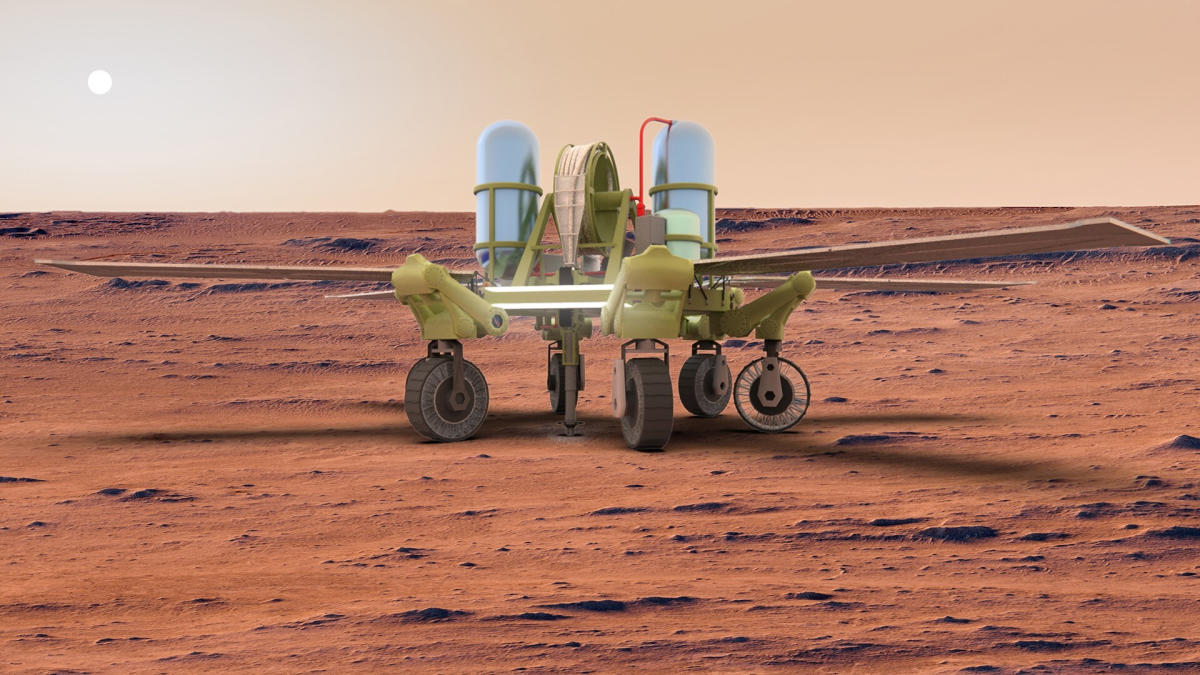
Drilling for water ice on Mars: How close are we to making it happen?
Scientists and engineers are making progress on drilling technology that could access Mars' seemingly vast stores of near-surface water ice.
Being able to have a source of water on Mars is vital to colonizing the red planet. Water is extremely heavy and weight is a major concern when blasting off in rockets and escaping Earth's gravity. We would need a lot of it on Mars, too. With a source of water on Mars, we could weigh down the rockets with other necessary stuff, like food, oxygen and equipment.
Drilling for water ice on Mars: How close are we to making it happen?
Scientists and engineers are making progress on drilling technology that could access Mars' seemingly vast stores of near-surface water ice.www.yahoo.com

Curiosity rover searches for new clues about Mars' ancient water
NASA's Curiosity rover has begun exploring a new region of Mars, one that could reveal more about when liquid water disappeared once and for all from the Red Planet's surface. Billions of years ago, Mars was much wetter and probably warmer than it is today. Curiosity is getting a new look into...


